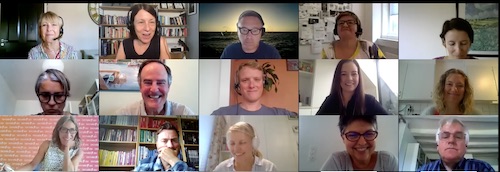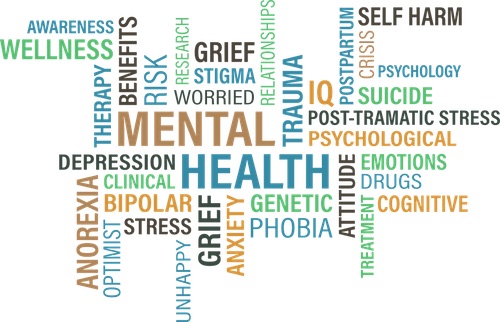Guest Blogs
Knowitall.ch often invites local experts in their field to contribute to their own blogs on our site. This means not only you will benefit from the useful recommendations that we make on our News pages, but you can also profit from some of the great advice and tips that these experts have to make on their favorite subjects. Whilst each of these bloggers has been recommended to us at some point during the evolution of Know-it-all passport and knowitall.ch, obviously we are not able to test out all the suggestions they make on their blogs, nor do we necessarily agree with all their opinions. So if you do find one of their tips useful (or not!), do let us know!
To make these blogs more accessible to you, we have now decided to group them altogether in one section, entitled Guest Blogs, accessible from our main menu bar. We will also post the most recent blogs on the home page of our site in the right hand column.
We are still building up this area of the site, and are looking for bloggers in a number of sections, including Your Home, Travel, and Leisure, so if you feel you have a useful contribution to make in either of these areas, and have the time to submit blog entries approximately every month, then please get in touch!

By Katie Harwood, Haut-Lac International Bilingual School in Switzerland
Many of us might have emerged from the countrywide lockdown having learnt a thing or two about ourselves that we might not have known before. Being kept indoors has been a learning experience of its own, complete with highs and lows like any emotional rollercoaster.
However, this hasn’t been an isolated phenomenon pertaining to adults only. Children and teenagers were also exposed to visions of the world and potential realities they had never before considered. This being the case, they may still be feeling some residual emotion that would be best discussed out in the open. To explore these new feelings properly, they may benefit from deepening their emotional vocabulary to include new sentiments beyond happy, sad, scared and angry. Giving more colour to the words used to describe our emotions makes it much easier to accurately share our feelings.
Practice Talking About Your Own Feelings More Openly
It is natural for parents to want to shield children from certain emotions. However, never seeing any adults displaying difficult emotions can make children feel self-conscious when doing so. In response, they might internalise their feelings, which does not erase them but prevents any constructive discussion taking place.
Every Feeling is Okay
In the same vein, be conscious not to demonise any emotions, as this will encourage children to share their feelings with you. All emotions are natural and a response to something happening in life. The easier they are to talk about, the less they are allowed to dominate the consciousness. Being able to talk about frustration, anxiety, anger etc. means having an outlet to safely release it.

By Aurea Fagel, text and photos
Three things come to my mind when autumn is here: the colorful leaves, “la chasse” or game meat and wine tasting!
Autumn Leaves
Where to witness the grandeur of the autumn leaves? Switzerland has definitely a handful of beautiful places if the weather ensures the leaves wither gracefully. Photographers and nature lovers go in search for that perfect spot.
The Arboretum in Aubonne is one such place to see a display and reflection of colorful trees. This national park has been in existence since 1968 and houses a variety of plants, flowers and trees. Being a photographer myself I have been going there many times to shoot autumn. The place has lots of short and long trails for everyone and holds events all-year. This coming Oct 18 and 25, there will be a guided tour of the Japanese forest and the colorful autumn trees respectively! So mark your calendars and allot at least half a day.
Another great spot is the Ballenberg in Brienz, central Switzerland. It is the largest open-air museum in Switzerland which showcase Swiss traditional homes and handicrafts. Autumn is a good time to visit if only for the colorful leaves. Best to wear your hiking boots or comfy shoes as it will involve a lot of walking!

By Katie Harwood, Haut-Lac International Bilingual School
In our previous article about the IBCP (International Baccalaureate Career-Related Programme), we explored the many ways in which the course prepares and enables students for university. Conversely, if you are looking to see how it sets students up for a smooth and positive entrance into the world of work, read on. This article has you covered.
Different from the IBDP (Diploma Programme)
The core components of the IBCP are where your vocational training begins, veering away from the traditional IBDP framework. The IBCP covers everything from extensive work experience, to professional and practical skills development and research capabilities. What’s more, the service learning element will help you to develop a deeper sense of community and cooperation. Thanks to these tools, the confidence and maturity you display when handling adult situations will grow steadily, both in and out of the workplace.
The IBCP will teach you what is expected in terms of attitude, behaviour and practical skills when you enter the professional arena. As one student attests, “They introduce you to the real world. You have to learn a lot of other things, like… about getting jobs, creating your LinkedIn, how you market yourself, how you deal with people who disagree in a way that is productive…”
Such preparation will be visible in the assurance and ease you will later be able to demonstrate in a job setting.

By Claire Doole, www.doolecommunications.com
"It ain't so much the things that people don't know that makes trouble in this world, as it is the things that people know that ain't so." This is one of the many quotes attributed to 19th Century American writer Mark Twain and it definitely applies to presenting.
Many people think they are good presenters – mostly because people are too polite to tell them they are not, or in the case of senior people because no one dares tell them!
Presenters themselves also have a blind spot. This month I was asked to train a number of speakers taking part in virtual conferences. I blocked time in my diary and waited for the Doodle calendar to fill up. Two things happened – some people were too busy, others left it to the last moment.
This only confirmed to me another great quote about public speaking. This time by the American comedian, Jerry Seinfeld, who said, “According to most studies, people's number one fear is public speaking. Number two is death. Death is number two. Does that sound right? This means to the average person, if you go to a funeral, you're better off in the casket than doing the eulogy.” People who don’t like public speaking tend to put off preparing their presentation until the last minute.

By Dr Michelle Wright, HealthFirst
Every year on 10th October, the World Health Organisation observes World Mental Health Day. The aim of the day is to raise awareness globally about issues surrounding mental health, to get people talking, and to mobilise efforts to support mental health.
The latest World Health Organisation statistics reveal:
- 1 billion people worldwide are living with a mental health disorder
- 3 million people die every year from the harmful use of alcohol
- 1 person dies every 40 seconds by suicide
- And now, billions of people all over the world are affected by the COVID-19 pandemic, which is having a further impact on people’s mental health
Never before have conversations about mental health and proactively looking after our mental health been so important. This year’s campaign for World Mental Health Day is calling for an increased investment in mental health – “Move for Mental Health: let’s invest!”
To acknowledge the gravity of the current situation and how it is impacting us all as individuals and as a global society, we are bringing the HealthFirst community together to mark World Mental Health Day 2020.








